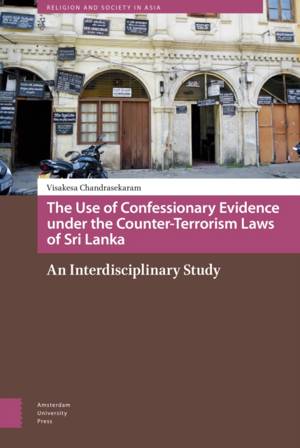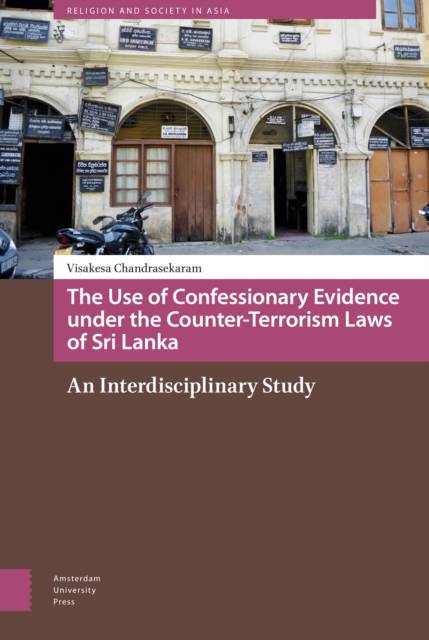
- Afhalen na 1 uur in een winkel met voorraad
- Gratis thuislevering in België vanaf € 30
- Ruim aanbod met 7 miljoen producten
- Afhalen na 1 uur in een winkel met voorraad
- Gratis thuislevering in België vanaf € 30
- Ruim aanbod met 7 miljoen producten
Zoeken
The Use of Confessionary Evidence under the Counter-Terrorism Laws of Sri Lanka
An Interdisciplinary Study
Visakesa Chandrasekaram
€ 213,95
+ 427 punten
Uitvoering
Omschrijving
This book applies theoretical insights from the work of philosophers such as Carl Schmitt, Giorgio Agamben, and Michel Foucault to the Sri Lankan context to examine the conflicting narratives relating to the counter-terrorism laws produced by both sides in the conflict.
Specificaties
Betrokkenen
- Auteur(s):
- Uitgeverij:
Inhoud
- Aantal bladzijden:
- 228
- Taal:
- Engels
- Reeks:
Eigenschappen
- Productcode (EAN):
- 9789462981577
- Verschijningsdatum:
- 3/01/2017
- Uitvoering:
- Hardcover
- Formaat:
- Genaaid
- Afmetingen:
- 160 mm x 236 mm
- Gewicht:
- 480 g

Alleen bij Standaard Boekhandel
+ 427 punten op je klantenkaart van Standaard Boekhandel
Beoordelingen
We publiceren alleen reviews die voldoen aan de voorwaarden voor reviews. Bekijk onze voorwaarden voor reviews.








